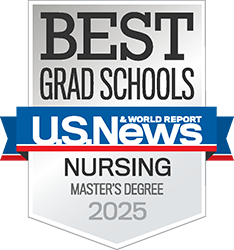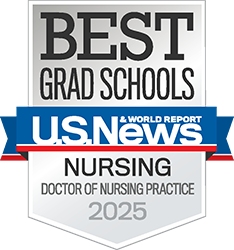

Roybal grant funds elder mistreatment research center
Cizik School of Nursing secures NIH award for UTHealth Houston
Decades of leadership in the field of elder mistreatment research has earned UTHealth Houston its first grant from the prestigious Edward R. Roybal Centers for Translational Research in the Behavioral and Social Sciences of Aging program, funded by the National Institute on Aging (NIA).
The five-year, $5.265 million award to Cizik School of Nursing at UTHealth Houston will fund the creation of the multidisciplinary Roybal Center for Elder Mistreatment Intervention Research, the first Roybal center to focus on elder mistreatment. The NIA is part of the National Institutes of Health (NIH).
Directing the center’s administrative core will be Carolyn Pickering, PhD, RN, whose team submitted the proposal. Pickering is a professor at Cizik School of Nursing, the Isla Carroll Turner Chair in Gerontological Nursing, and a noted expert in dementia family caregiving.
Serving as multiple principal investigators along with Pickering are Brad Cannell, PhD, MPH, and Ronald Acierno, PhD, who will direct the center’s behavioral intervention development core. Cannell, an associate professor in the Joan and Stanford Alexander Division of Geriatric and Palliative Medicine at McGovern Medical School at UTHealth Houston, created the Detection of Elder Abuse Through Emergency Care Technicians (DETECT) screening tool. Acierno is a professor and vice chair of veteran affairs in the Louis A. Faillace, MD, Department of Psychiatry and Behavioral Sciences at McGovern Medical School at UTHealth Houston and executive director of the UTHealth Houston Trauma and Resilience Center. Acierno was lead author on what is considered the seminal national elder mistreatment prevalence study published in 2010 in the American Journal of Public Health (doi: 10.2105/AJPH.2009.163089).
The estimated prevalence of elder mistreatment ranges from more than 15% for the general population of community-dwelling older adults up to 60% for those living with dementia and other neurodegenerative disorders. However, the U.S. Preventive Services Task Force doesn’t recommend screening older adults for mistreatment because no evidence-based guidelines exist for prevention or intervention.
“Elder mistreatment is a complex phenomenon that results from the interaction of many different factors,” Pickering said. “It can manifest as financial exploitation, neglect, and self-neglect, as well as physical, psychological, and/or sexual abuse.”
The new Roybal center will establish infrastructure and mentorship to support pilot studies of behavioral and social interventions to explore ways to reduce exposure to elder mistreatment and its mental and physical impacts on community-dwelling older adults and their caregivers. Goals include helping researchers progress through the stages of intervention development established by the NIH, increasing the number of researchers trained in elder mistreatment interventions, and evaluating mechanisms and outcomes of those interventions.
“A major innovation of this center is that our organizational structure and activities are intentionally designed to help overcome well-recognized barriers to elder mistreatment research,” Pickering said.
Identifying and recruiting older adults and/or family caregivers to participate in studies can be particularly difficult. The center will enable early-stage researchers to benefit from long-standing relationships UTHealth Houston scientists have built on multiple fronts.
For example, Pickering maintains a pool of hundreds of family caregivers who have previously participated in her NIH-funded research studies, and co-investigator Jason Burnett, PhD, collaborates regularly with the Texas Department of Family and Protective Services through his work with the Texas Elder Abuse Mistreatment (TEAM) program. In addition, co-investigator Melba Hernandez-Tejada, PhD, DHA, leads a psychotherapy and research clinic specifically devoted to elder mistreatment.
Burnett is an associate professor of geriatric and palliative medicine at McGovern Medical School where Hernandez-Tejada is an associate professor in the Faillace Department of Psychiatry and Behavioral Sciences.
“We argue that while elder mistreatment is sometimes a criminal problem, it is always a clinical problem,” Pickering said. “It is always accompanied by physical and mental health concerns for both the caregiver engaging in abuse and neglect and the older adult care recipient.”
While research specifically targeting elder mistreatment is a small field, findings from overlapping fields such as caregiving and trauma science may inform development of mechanism-based interventions, Pickering said. Pilot researchers will be encouraged to consider adapting interventions from related disciplines as they begin their work focused on elder mistreatment. Pilot proposals currently under review would fund studies at UTHealth Houston and other area institutions.
To further support investigators new to the field, the Roybal center features a human subjects safety panel led by Burnett that will offer pre-review consultation for pilot projects, and a participant-reported outcomes advisory team led by Hernandez-Tejada.
The roots of clinical geriatrics leadership at UTHealth Houston can be traced to establishment of the university’s Consortium on Aging by Carmel Dyer, MD, who joined the medical school in 2007, and even further back to the founding of the nursing school’s Center on Aging in 1987. Dyer, who passed away in May 2021, founded the Elder Abuse and Mistreatment Institute at Baylor College of Medicine earlier in her career.
“Dr. Dyer’s leadership in the area of elder mistreatment provided vision and tangible progress on clinical assessment and intervention, education, research, and advocacy for more than 40 years,” said Aanand Naik, MD, who will serve as the Roybal center’s activity leader for program sustainability. He is the executive director of the UTHealth Houston Institute on Aging and a professor and chair of the Department of Management, Policy, and Community Health at UTHealth Houston School of Public Health. Naik also holds the Nancy P. and Vincent F. Guinee, MD, Distinguished Chair and the Uzi and Micki Halevy and Carmel Dyer, MD, Interprofessional Research Fellowship at UTHealth Houston.
Today, six researchers at the university have led or held key roles on 63 elder mistreatment research projects with more than $46 million in funding. The Roybal grant follows recommendations from the National Academies of Sciences, Engineering, and Medicine that a research center for elder mistreatment based at UTHealth Houston would accelerate research in the field.
“We are honored to carry on and elevate a decades-long tradition of innovation in improving the lives of older adults,” said Diane Santa Maria, DrPH, MSN, ACRN, PHNA-BC, FAAN, dean of Cizik School of Nursing, The Jane and Robert Cizik Distinguished Chair, and Huffington Foundation Endowed Chair in Nursing Education Leadership. “By focusing on exploring the drivers of elder mistreatment and developing innovative interventions with measurable results, we can help ensure safe and high-quality care for older adults.”
The center will receive support from the UTHealth Houston Institute on Aging, which includes TEAM; the psychiatry department’s Career Development and Research Excellence Program; the UTHealth Houston Institute for Implementation Science; the UTHealth Houston Center for Clinical and Translational Sciences; and the UTHealth Houston Institute for Stroke and Cerebrovascular Diseases.
In addition, representatives from UTHealth Houston School of Public Health will serve on the center’s executive committee:
- Bijal Balasubramanian, PhD, MBBS, professor, regional dean of UTHealth Houston School of Public Health in Dallas, and The Rockwell Distinguished Chair in Society and Health
- Rafael Samper-Ternent, MD, PhD, associate professor at the School of Public Health
- Samiran Ghosh, PhD, professor and vice chair of the Department of Biostatistics and Data Science at the School of Public Health



